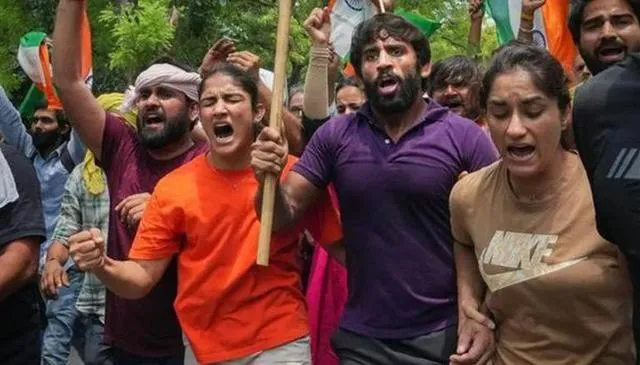
The International Olympic Committee (IOC) is holding its 140th annual session from October 15 to 17 in Mumbai, India, where the government is expected to announce its bid to host the 2036 Summer Olympic Games in the western state of Gujarat. India has never hosted the Olympics and the government of Prime Minister Narendra Modi believes that now is the “right time.”
In May, the Sport & Rights Alliance and the IOC itself condemned Indian authorities’ treatment of female athletes during a protest in Delhi against outgoing Wrestling Federation of India president and BJP member of parliament Brij Bhushan Singh. Security forces tackled and forcibly detained women wrestlers, including Olympic medallists, as they demanded justice and safety for female athletes who filed police complaints of sexual abuse spanning a decade against Singh. Initially, the authorities appeared to shield Singh, but an investigation into the complaints is now ongoing. Hosting mega-sporting events has increasingly served as a veneer for governments to “sportswash” their poor rights records. Such events should instead accelerate reforms and protections of human rights. The IOC has adopted a human rights framework in accordance with the United Nations Guiding Principles on Business and Human Rights. In Mumbai, the IOC Executive Board will propose amendments to the Olympic Charter to “better articulate” their commitment to stamping out all forms of discrimination in the Olympic Movement.
With the Modi government’s Olympics bid, the IOC has a key opportunity to press for human rights reforms and justice for affected Indian athletes. If governments want the prestige that goes along with hosting sports’ biggest event, the IOC needs to ensure that all future hosts do human rights due diligence and remedy rights abuses in their country, including stopping the abuse of athletes and the targeting of journalists.
